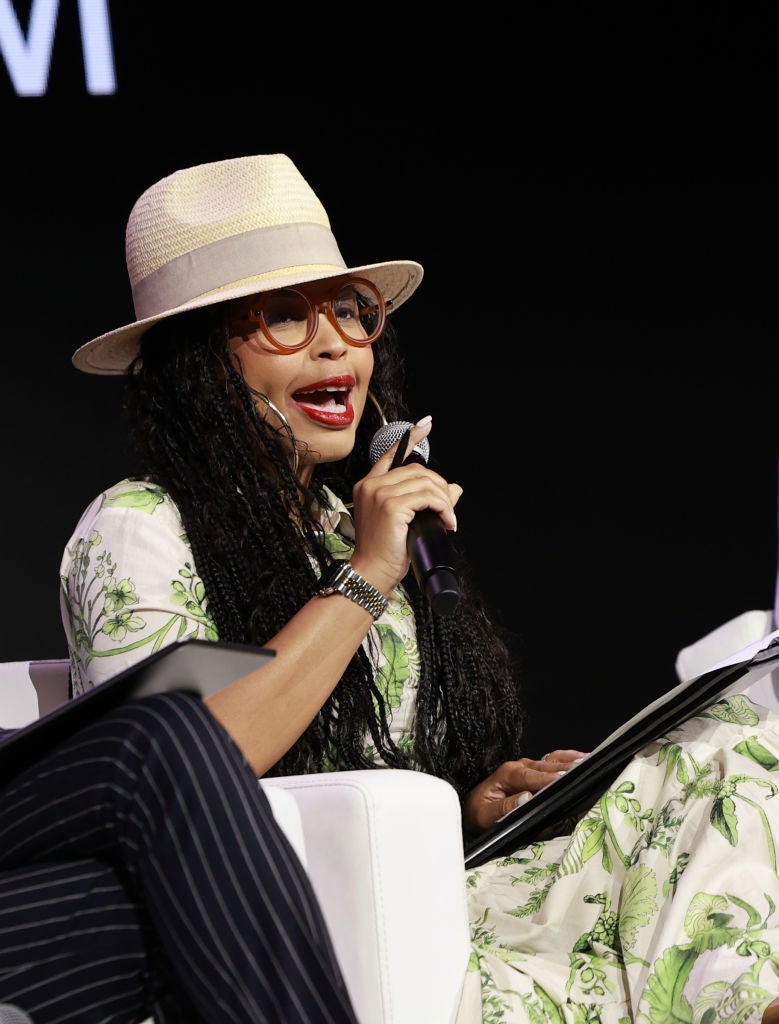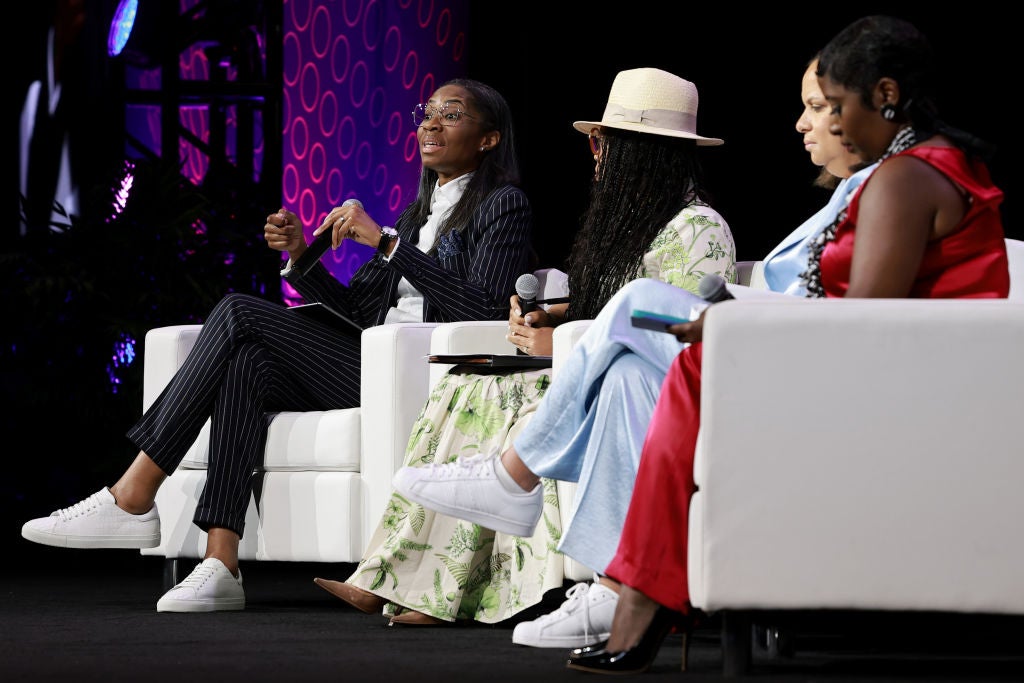
In a compelling Sunday morning panel during ESSENCE Fest 2024, industry leaders convened to address the pressing issue of Diversity, Equity, and Inclusion (DEI) in the workplace and beyond. The discussion, moderated by reporter Ebony McMorris, featured notable voices, including Mylan Denerstein, Partner at Gibson Dunn and Crutcher, Lanaya Irvin, CEO of CoQual and Dr. Sesha Joi Moon, PhD, Former Chief Diversity Officer of the U.S. House of Representatives and strategist for Congresswoman Jasmine Crockett.
Morris began by highlighting the significance of the discussion taking place on a Sunday, a day many would be engaged in worship. She likened the fervent advocacy for DEI to a form of spiritual devotion, emphasizing that the conversation aims to shed light on the pervasive issues of white supremacy, injustice and racism.

The panelists were invited to define DEI, and Moon passionately countered the notion posited by the Heritage Foundation that DEI is manipulative. She clarified that DEI is fundamentally about fairness and equity for all people, not just minorities. Moon stressed that affirmative action, often conflated with DEI, is a separate initiative designed to remedy past discrimination. DEI, she argued, is about ensuring equal opportunities for everyone.
Each panelist brought a unique perspective. Moon highlighted the misguided and intentional nature of the opposition to DEI, referencing how some groups define it as rewarding and punishing individuals based on identity.
The panelists presented stark statistics illustrating the systemic barriers faced by people of color, particularly black women. They noted that despite Black women being the most educated group in the U.S., they receive less than 1% of venture capital investments. This, they argued, is a clear indication of the inequities that DEI seeks to address.
The conversation took a historical turn as panelists discussed the long-standing efforts to undermine DEI initiatives. They referenced Project 2025, a conservative agenda aimed at eliminating DEI, and contrasted it with the ongoing need for systemic change to support marginalized communities.
The panelists also acknowledged the efforts of certain companies and legislators committed to DEI. They highlighted how companies that have reversed course on eliminating DEI programs due to public pressure. The panel also praised legislative efforts, such as those by Congressman Hakeem Jeffries, to institutionalize DEI in public policy.
Despite the challenges, the panelists remained optimistic. They urged the audience to support black-owned media, vote in elections to support DEI-friendly policies, and push for systemic changes in corporate practices. Moon emphasized the need for organizations to examine their talent systems comprehensively, addressing bias at every stage from recruitment to promotion.

The session concluded with a call to action. The panelists encouraged relentless pursuit of justice and equity, urging everyone to contribute to building an inclusive society. As Morris eloquently put it, “When people build fences, we build ladders. And now, we can also build planes to soar over those fences.”
The discussion underscored that DEI is not just a corporate or political issue but a moral imperative that requires collective effort and unwavering commitment. The panelists’ insights and passionate advocacy provided a roadmap for navigating the challenges and seizing the opportunities in the ongoing journey toward equity and inclusion.